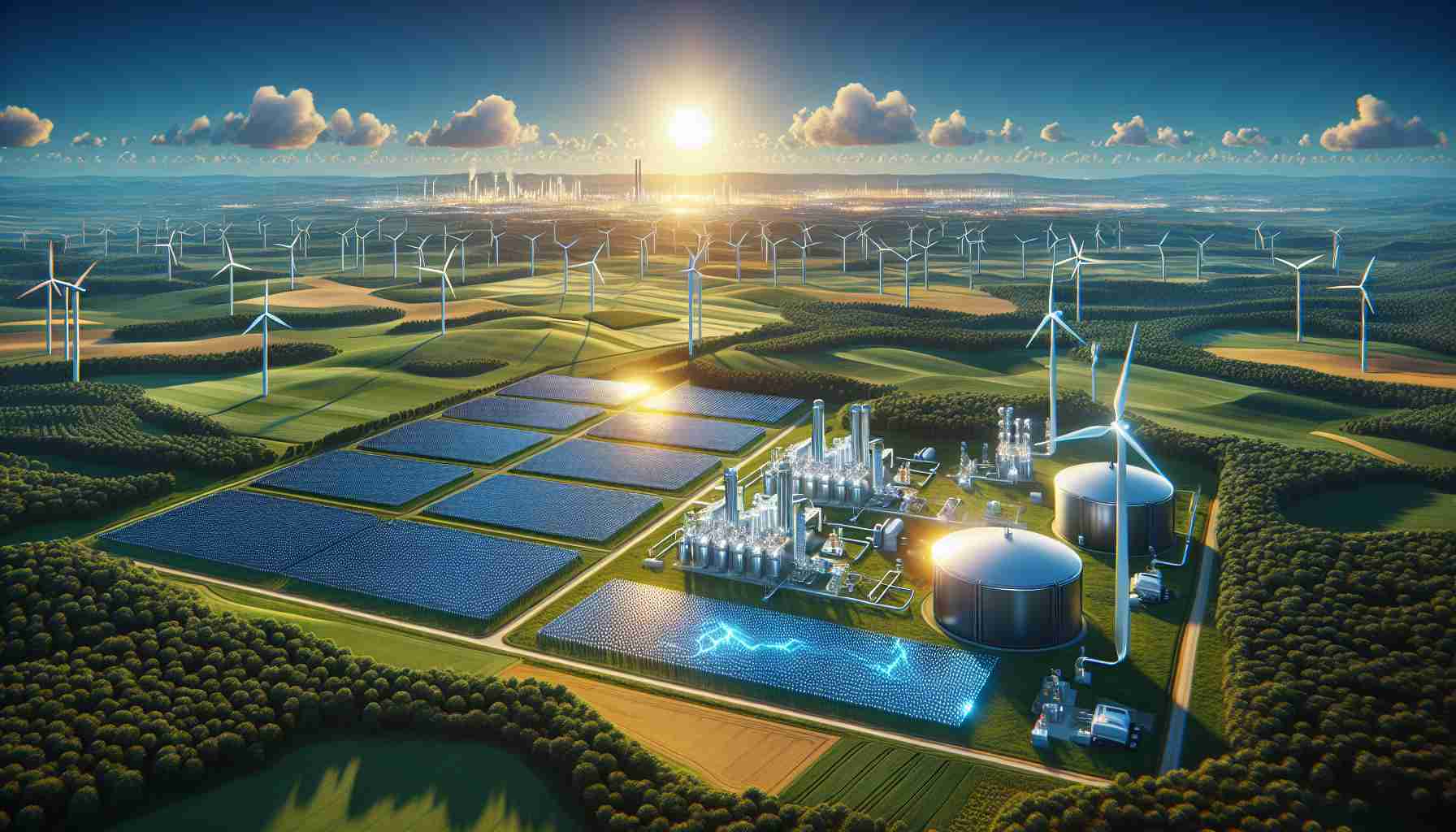The U.S. Department of Energy has pledged up to $1 billion to establish a promising hydrogen hub in the Midwest, a potential game-changer for sectors difficult to decarbonize. Spanning across Indiana, Illinois, Michigan, and Iowa, this initiative will focus on the creation of “blue” hydrogen. This process involves utilizing fossil fuels to produce hydrogen, coupled with carbon capture and storage technology. One of the noteworthy sites participating in this effort is BP’s Whiting Refinery in Indiana.
Exciting Potential Meets Local Concerns
Despite the ambitious nature of this endeavor, residents in northwest Indiana express trepidation regarding the project’s safety implications. Concerns chiefly revolve around the storage of carbon emissions underground, a method criticized for its potential hazards. These residents have previously faced challenges, such as toxic fumes affecting their health, thus heightening their fears about new developments.
The Role of Mach H2 and Community Engagement
Mach H2, the driving force behind this hydrogen hub, emphasizes the importance of transparent dialogue with the communities involved. Elizabeth Kocs, a key figure within Mach H2, stresses that project success hinges on fostering robust and trusting relationships between companies and local residents. This phase is critical for aligning ambitions with safety and environmental standards.
The Political and Economic Stakes
The evolution of this hydrogen hub is subject to political changes and funding continuity. As administrations shift, projects like these may face uncertainties but could remain resilient due to bipartisan support. Key stakeholders highlight hydrogen as an adaptable energy source crucial for the future, likening it to a Swiss Army knife for its versatile applications in transforming the energy landscape.
Unveiling the Secrets: How Hydrogen Hubs Could Revolutionize Our Future
The Promise of Hydrogen: More Than Just a Fuel
The move towards establishing hydrogen hubs, particularly the $1 billion investment in the Midwest by the U.S. Department of Energy, is a significant step in the global energy transition. While the source article highlights the focus on “blue” hydrogen created from fossil fuels with carbon capture, a deeper dive into the hydrogen economy reveals numerous exciting avenues and potential challenges that could dramatically affect our daily lives and economic landscape.
Beyond Blue: The Spectrum of Hydrogen Production
Hydrogen is often classified into colors based on its production method. While “blue” hydrogen involves carbon capture, “green” hydrogen relies on renewable energy sources like wind or solar to electrolyze water, producing hydrogen with zero emissions. The scalability and applicability of these varied production methods could determine the future dominance of hydrogen in energy sectors worldwide. This diversity is promising for reducing reliance on fossil fuels, offering a cleaner alternative for transportation, industrial processes, and even residential heating.
Impacts on Local Economies and Job Creation
Could hydrogen hubs become the new economic engine for communities? Potentially, yes. Establishing such large-scale projects promises job creation both directly in hydrogen production facilities and indirectly through supply chains and service industries. The hubs can become innovation centers, fostering new businesses and technology developments focused on energy efficiency and sustainability. This economic boost, however, is contingent upon managing community concerns and ensuring safety protocols are held to the utmost standards.
Are We Ready for Carbon Capture and Storage?
One of the prevailing controversies surrounding hydrogen production, particularly “blue” hydrogen, involves the effectiveness and safety of carbon capture and storage (CCS). The technology is not entirely foolproof, with some critics pointing to risks of leakage and the long-term implications of stored carbon. What happens if storage sites fail? And more importantly, how can we guarantee these sites are safe for future generations? These are crucial questions that need clear answers to gain public trust.
Hydrogen as a Global Game-Changer
Globally, the potential adoption of hydrogen as a versatile energy source could redefine energy politics and address energy security issues. By diversifying energy sources, countries can reduce their dependency on oil and gas imports, enhancing energy independence. The adaptability of hydrogen for various applications, from powering vehicles to heating homes and running industrial processes, makes it a candidate for widespread adoption.
Conclusion: Navigating the Road Ahead
As the demand for cleaner and more sustainable energy sources grows, the role of hydrogen hubs becomes even more critical. The challenges of community fears, technology reliability, and political shifts must be addressed to make this transition successful. As this landscape evolves, keeping informed and engaged is essential for citizens and policymakers alike.
For more insightful and detailed information on global hydrogen initiatives and updates, visit Department of Energy and International Energy Agency.


